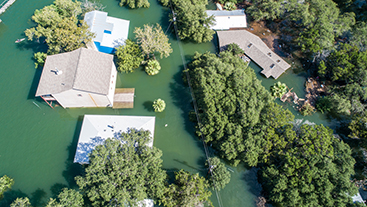National laws for enhancing flood resilience in the context of climate change: potential and shortcomings

External Links
Flood risk is increasing across the world due to climate change and socio-economic development, calling for a shift from traditional protection and post-event activism towards a forward-looking, risk-aware, and more holistic resilience approach. The national legal system of countries can play an important role in creating and encouraging such a shift. In this study, we explore the potentials and shortcomings of national laws in managing flood risk and increasing flood resilience in the context of climate change. We analyze 139 laws from 33 countries collected from the Climate Change Laws of the World and Disaster Law databases and underpin this with case studies to gain insights on the interplay between national laws and resilience processes. We find: (1) a shift in flood laws from focusing on flooding as a natural resource and water resource management issue towards a broader consideration of disaster risk management (DRM) and climate adaptation policy; (2) a significant lack of climate change recognition in laws regulating decisions and actions for future flood risks, especially in DRM; (3) a prevailing focus on response and recovery strategies and a lack of recognition of risk reduction strategies and proactive flood risk governance approaches; and (4) little recognition of natural capital (comparing to physical capital) and its role in increasing flood resilience.
Sara Mehryar & Swenja Surminski (2020) National laws for enhancing flood resilience in the context of climate change: potential and shortcomings, Climate Policy, DOI: 10.1080/14693062.2020.1808439

